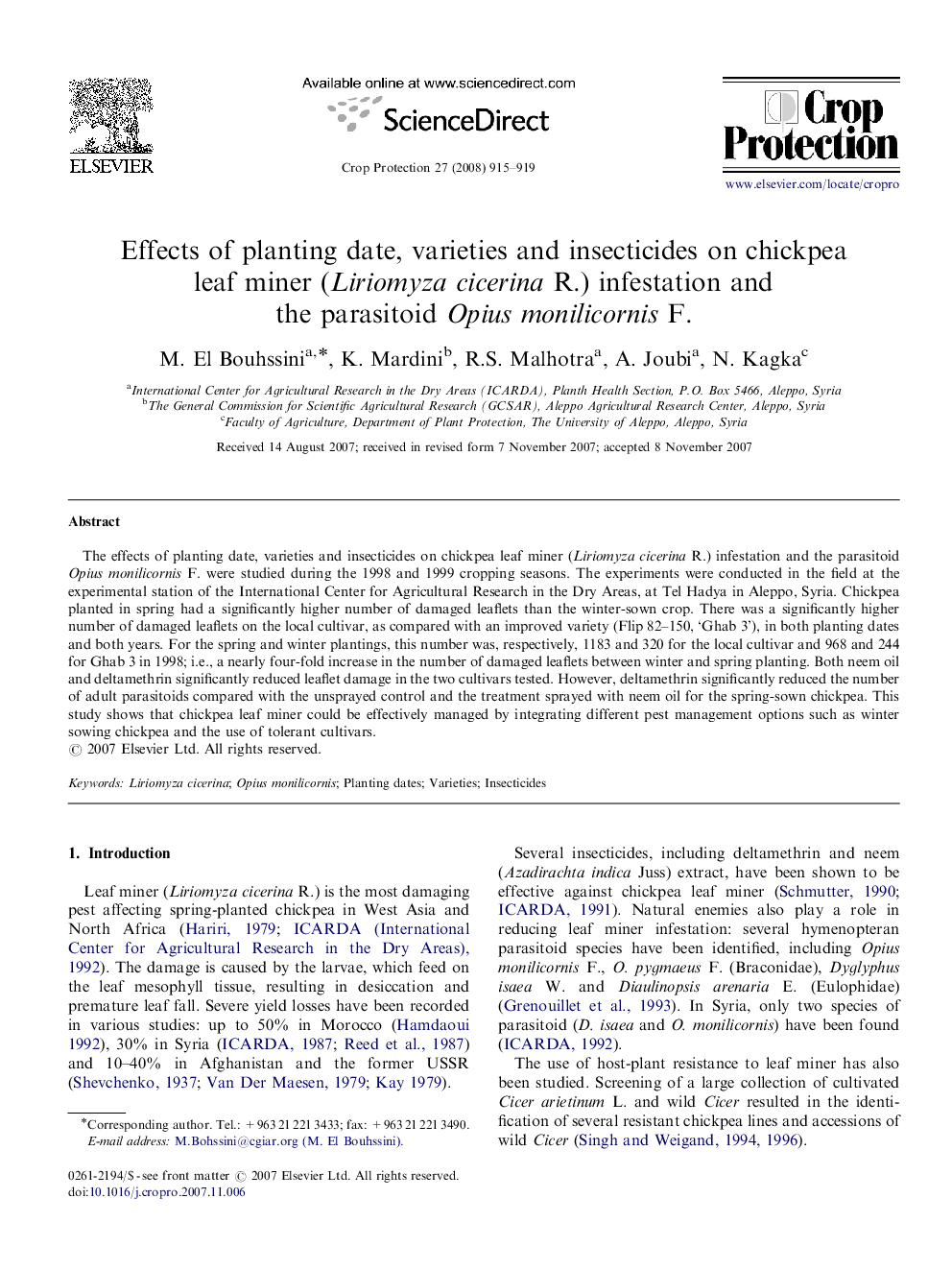| Article ID | Journal | Published Year | Pages | File Type |
|---|---|---|---|---|
| 4507634 | Crop Protection | 2008 | 5 Pages |
The effects of planting date, varieties and insecticides on chickpea leaf miner (Liriomyza cicerina R.) infestation and the parasitoid Opius monilicornis F. were studied during the 1998 and 1999 cropping seasons. The experiments were conducted in the field at the experimental station of the International Center for Agricultural Research in the Dry Areas, at Tel Hadya in Aleppo, Syria. Chickpea planted in spring had a significantly higher number of damaged leaflets than the winter-sown crop. There was a significantly higher number of damaged leaflets on the local cultivar, as compared with an improved variety (Flip 82–150, ‘Ghab 3’), in both planting dates and both years. For the spring and winter plantings, this number was, respectively, 1183 and 320 for the local cultivar and 968 and 244 for Ghab 3 in 1998; i.e., a nearly four-fold increase in the number of damaged leaflets between winter and spring planting. Both neem oil and deltamethrin significantly reduced leaflet damage in the two cultivars tested. However, deltamethrin significantly reduced the number of adult parasitoids compared with the unsprayed control and the treatment sprayed with neem oil for the spring-sown chickpea. This study shows that chickpea leaf miner could be effectively managed by integrating different pest management options such as winter sowing chickpea and the use of tolerant cultivars.
